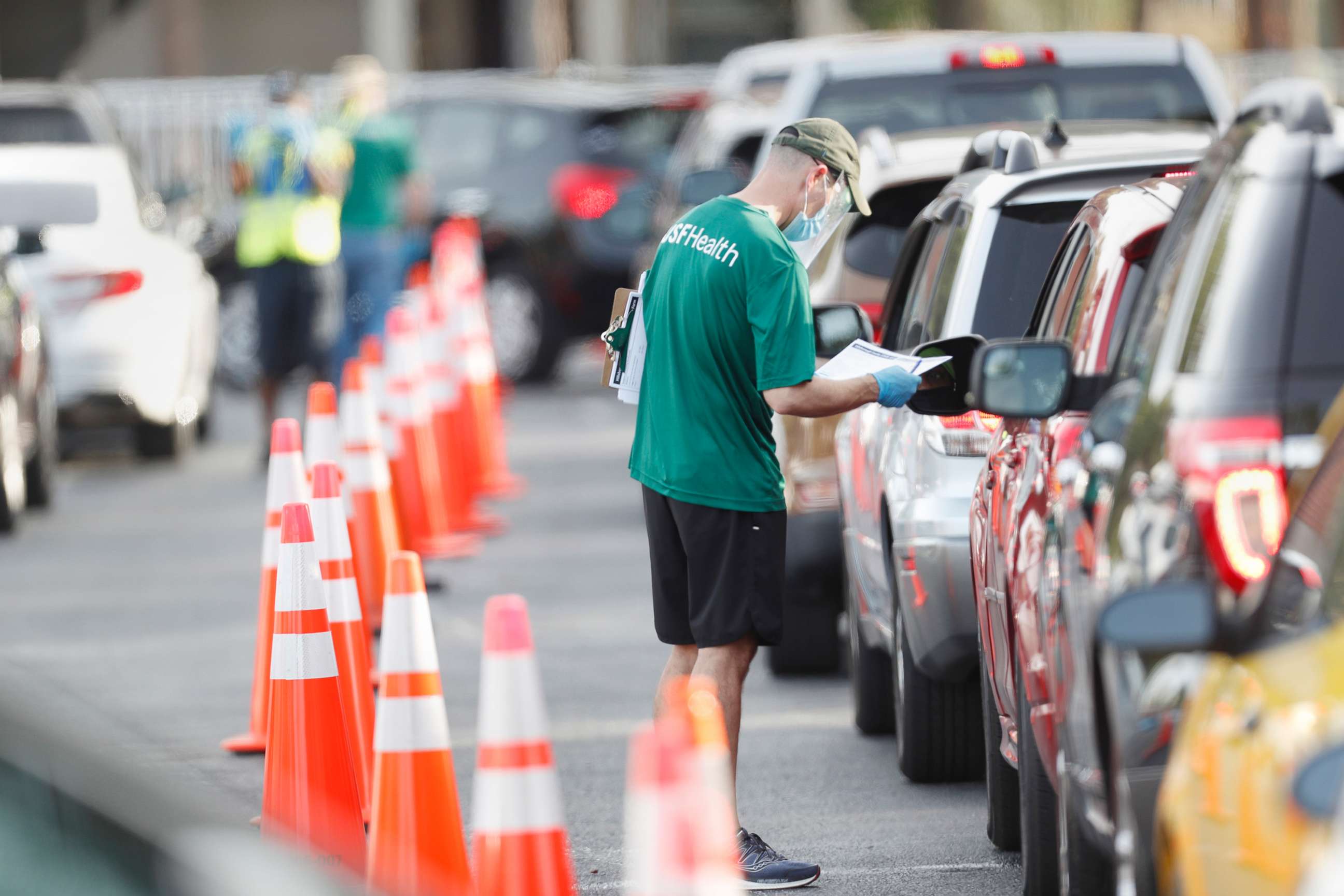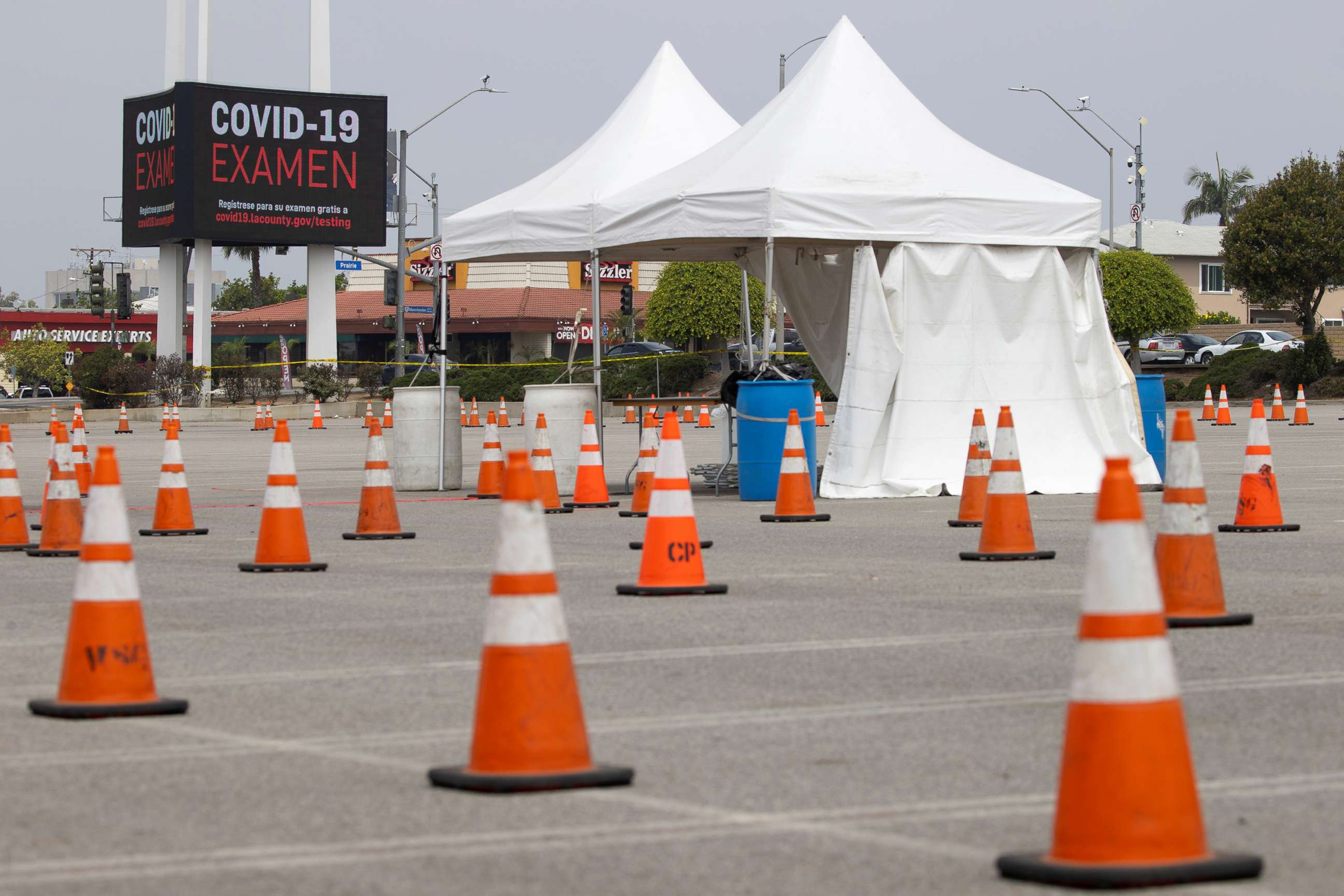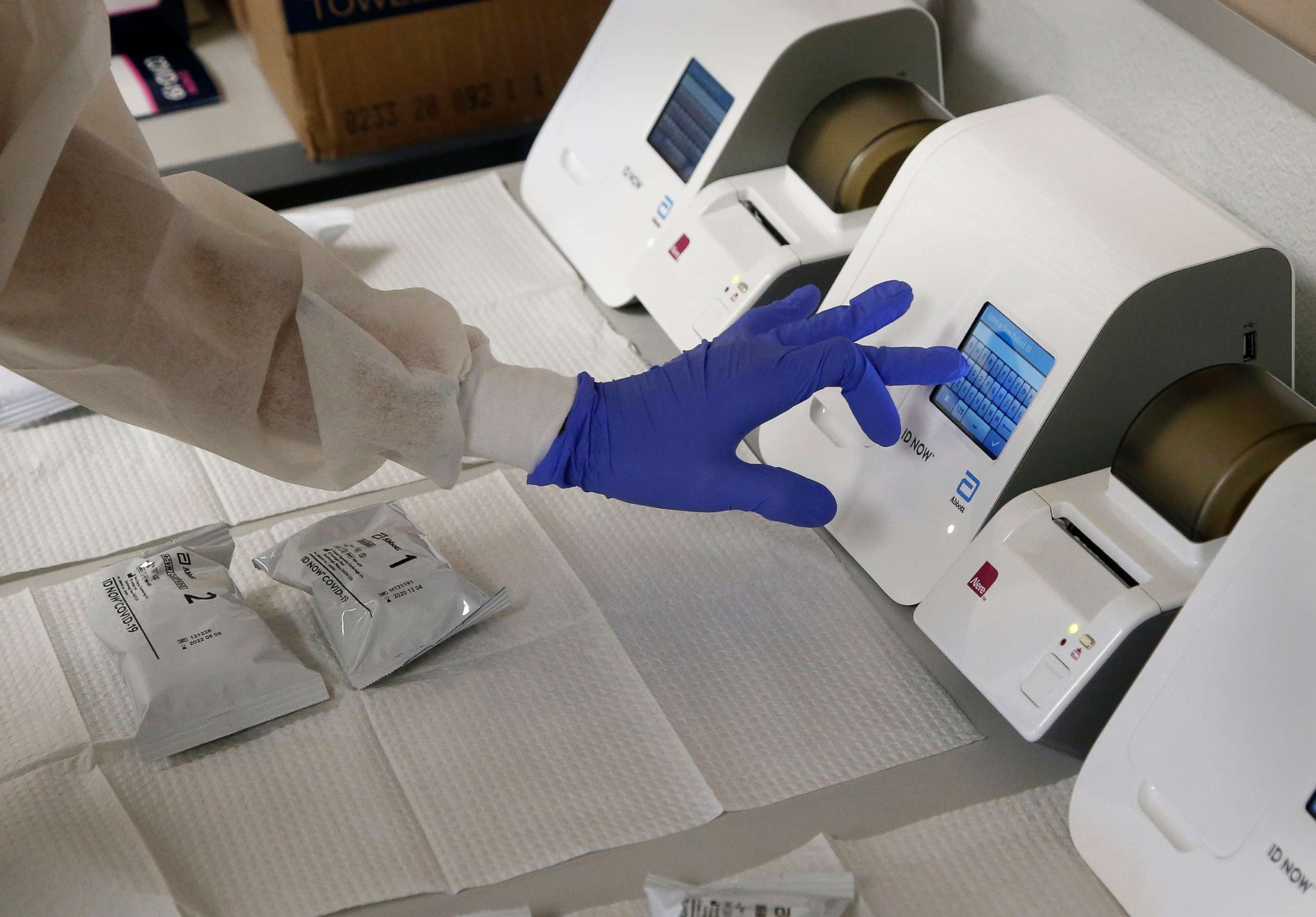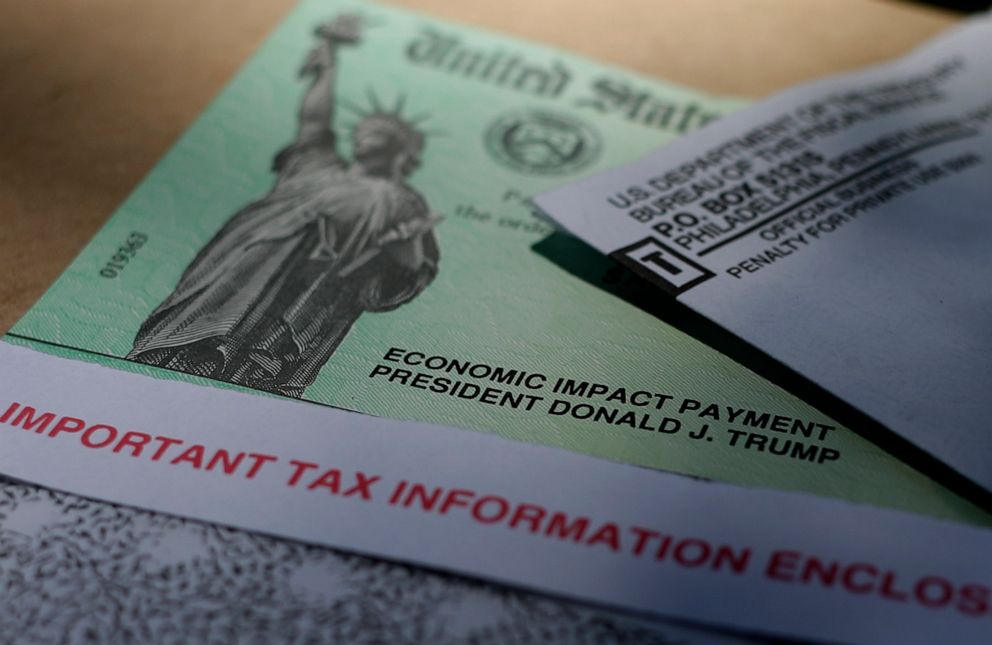US sent $1.4B in virus relief payments to dead people: Report
Incomplete testing data also made it difficult to track and stop the virus.
In a sweeping look at the Trump administration's handling of the coronavirus crisis, a congressional watchdog released a report on Thursday noting how "incomplete" COVID-19 testing data reported by the federal government complicated tracking and stopping the virus, while hastily enacted CARES Act economic programs were ripe for fraud, waste and abuse.
In one example, in the rush to disburse $270 billion from the Internal Revenue Service, nearly $1.4 billion was sent to dead people, according to the nonpartisan Government Accountability Office. And the Paycheck Protection Program, a signature initiative of the CARES Act and a quarter of all economic aid earmarked by the government, had no oversight plans for most of its loans.
But the most central issue to the pandemic, tracking and stopping the spread of coronavirus, was a key focus of the report, which found that among the many stumbling blocks the government faced in responding to the crisis was understanding who was getting sick and where.

The GAO determined that the Centers for Disease Control and Prevention, the agency in charge of reporting case numbers, was relying on testing data from multiple sources that varied over time and counted tests differently. That jumble of data points made it harder to pinpoint where the virus was a threat.
"We determined that the testing data that CDC has reported have not provided sufficiently reliable information on the amount of COVID-19 viral testing occurring over time because data have been incomplete and inconsistent," the GAO wrote.
The agency added that a newly imposed requirement could improve the effort. Beginning Aug. 1, the CDC has said it will require all lab results include a person's race, ethnicity, zip code, age and sex.
"CDC maintains that these were the best testing data available and they have provided critical insights into how much testing has occurred," it added. "However, CDC acknowledged limitations to these data and we found that the absence of complete and consistent COVID-19 testing data reported through May 31, 2020, has made it more difficult to track and know the infection rate, mitigate the effect of infections, and inform decisions on reopening communities."

The CDC's struggle to deploy working tests and collect data from state-run labs is not new. But the GAO report provided extensive details on how the problems continued through May, even as President Donald Trump and his top aides hailed the federal response.
The 403-page report also provided one of the most in-depth looks at the response from Congress to help the economy as the country came to a screeching halt.
One of the first programs that was ready to go out the door in March was the IRS-run economic impact payments, which provided $1,200 checks to millions of Americans.

According to the report, however, the Treasury Inspector General for Tax Administration later found that, as of April 30, 1.1 million direct payments totaling $1.4 billion were sent to dead people.
To fix the misuse of over $1 billion of taxpayer money, the GAO recommended that the IRS look for cost-effective options for notifying ineligible recipients about how to return the checks, which the IRS has done on its website. It also urged Congress to amend the Social Security Act to allow the Social Security Administration to share death data with Treasury as a safeguard, though the GAO noted that doing so wouldn't have prevented the payments to dead Americans in this instance.
"We maintain that providing Treasury with access to SSA's full set of death records, and requiring that Treasury consistently use it, could help reduce similar types of improper payments in other circumstances," the report said.

Though the GAO report recognized speed was of the essence in order to help business owners, it also underscored that the rush to implement the program created barriers to oversight and the potential for fraud, abuse and waste.
The Paycheck Protection Program, which offered forgivable loans to small business owners so long as the majority of the money was used to rehire workers lacked sufficient safeguards or oversight, the report found.
"For example, while [the Small Business Association] planned to review loans of more than $2 million, as of June 15, 2020, it had not provided details on how it planned to carry out that work, and it had not provided information on oversight plans for the more than 4 million loans of less than $2 million each," according to the GAO.
The Small Business Association has announced it will not conduct an audit on loans of less than $2 million, saying businesses that took smaller loans presumably took them in good faith. But the report points out that 79% of loans fell into this category, representing about $480 billion of taxpayer money.

The report goes on to criticize the Small Business Association for failing to provide granular data on loans issued -- a fight that the media and lawmakers waged at the same time, unsuccessfully attempting to get SBA to divulge the recipients of individual loans. In recent weeks, the Small Business Association and the Treasury Department changed course, announcing on June 19 that individual loan data would be released. It still has not been made public.
"GAO continues to work with SBA officials to obtain needed data and other information. Most agencies were generally able to provide GAO timely access to information for this report while executing their responsibilities during this unprecedented national crisis," the report said.
The report also flagged the potential that some workers may be receiving paychecks from their workplaces funded by PPP loans, while also collecting enhanced unemployment assistance, a portion of the CARES Act that accounted for 15% of the $2.6 trillion in government aid set aside for coronavirus relief.
"The new PPP created by the CARES Act could increase the risk of improper payments in the UI program," the report found. While people are required to report if they go back to work, there are no regulations specific to going back to work for a company that's using PPP funds.
"According to [the Department of Labor], no mechanism currently exists that could capture information in real time about UI claimants who may receive wages paid from PPP loan proceeds," the report found.
In its report, the GAO recommended that the Department of Labor, in consultation with other agencies, "immediately provide help to state unemployment agencies that specifically addresses PPP loans, and the risk of improper payments associated with these loans."
The Department of Labor is planning to release further guidance, according to the report.




